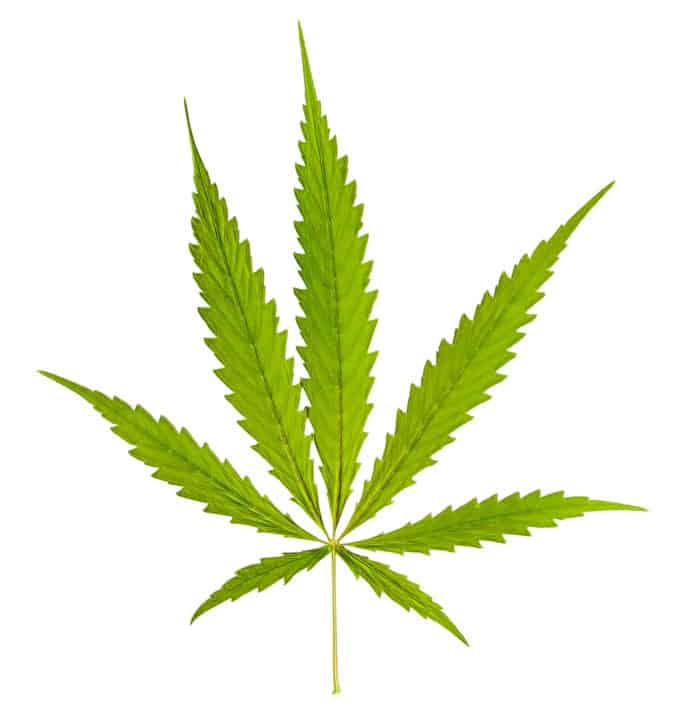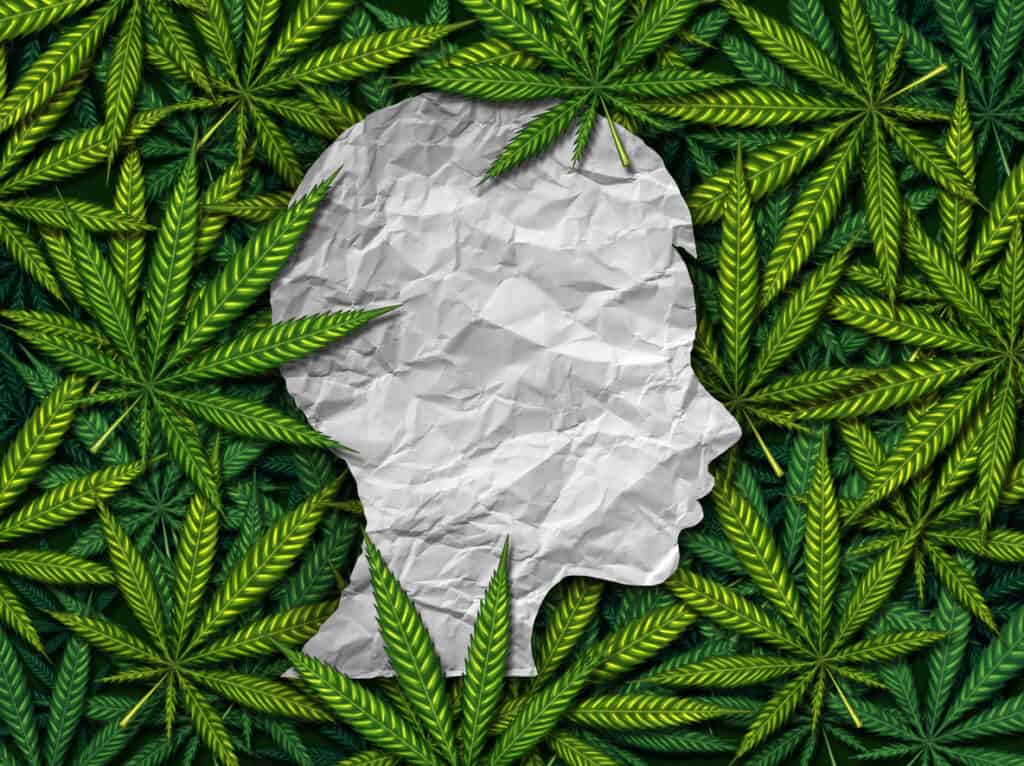Do higher THC levels cause addiction? Will Florida limit dosing?
Out of the hundreds of cannabinoids (chemical compounds) in marijuana, CBD (cannabidiol) and THC (tetrahydrocannabinol) are behind most of the plant’s medicinal benefits. And it’s THC - not CBD - that produces the “high.”
In fact, CBD has a long list of holistic and medicinal benefits. Unlike CBD, THC is mainly defined by how cannabis makes you feel. That said, the ratio of CBD and THC matters to dosage. And yet, THC's average potency continues to outpace CBD content. In fact, most cannabis strains today are bred for potency and high THC. And since cannabis legalization remains behind the curb, the influx of high-potency cannabis products on the market largely goes unchecked.
There are two important questions in most Floridians' minds these days: Does THC percentage really matter? And will Florida put a cap on THC in Marijuana?
The % of THC concentration is less important than the total mixture of compounds in a cannabis product. While higher THC levels are linked to highly potent weed, the intensity changes when combined with other cannabinoids and terpenes in cannabis. The reason why THC levels are stressed today is because there’s no set potency metric.
In other words, while THC may not matter too much from a scientist's perspective, it's enough to make the other side blow horns. Thankfully, Florida's Governor hasn't been too eager to take the bite so far.
The Florida measure, HB1455, was introduced into the legislature but was turned down in 2021. It tried to cap THC at 60% for concentrates and 10% for flowers. Similar bills are also being pushed in 2022, but the State of Florida is unlikely to put a THC cap soon.
Let's take a quick look at the study that sparked this debate.
Latest Study: Higher THC Equals Cannabis Addiction
A new study published in Lancet Psychiatry, "Association of cannabis potency with mental ill health and addiction: a systematic review," links the potency of cannabis products to marijuana addiction in adults and underage children.
The study concludes that higher THC levels cause addiction in people who consume higher concentrations of THC (tetrahydrocannabinol). They are also more likely to suffer from mental health issues and addiction.
This was a "systematic review" where the authors looked at and reviewed several different studies pertaining to cannabis potency and mental health disorders.
After reviewing and analyzing the other studies, the authors' data suggested that mental health disorders and issues like anxiety and depression are more common among high-potency marijuana users than low-potency users.
Statistically speaking, the risk among potent users is four times that of non-potent users.
Authors also found that the rise in THC concentration per milligram of weed is constant with increased patients (marijuana addicts with cannabis disorders) registered at concerned facilities.
While it could just have been a false positive given how our filtration and manufacturing processes have evolved over the years. And how people are accepting more medical help than their predecessors ever did.
Read More: Does Florida have Recreational Marijuana?
1. What are the risks of marijuana and its addiction?
Indeed, a higher THC concentration may not directly equate to addiction, but it does mean a stronger buzz. And if a product can get you a more potent buzz, you're more likely to return to it.
THC concentrations may or may not have anything to do with it. Still, it's a fact that 10% of adults and 16.67% of underage children (<18) risk getting addicted. Here's a list of risks of higher THC levels cause addiction that you must know beforehand.
- Hindrance in Daily Life: People who consume marijuana excessively have reported less satisfaction with life achievements, relationship problems, work problems, and completion of fewer work goals.
- Loss of IQ: The sources for this aren't rock-solid, but marijuana has been successfully linked with loss of as much as 8 non-returnable IQ points when started at a young age.
- Bad Mental Health: Marijuana addiction has been linked with excessive stress, anxiety, suicide, depression, and psychotic events. As of now, it's unclear if marijuana is the cause or the effect of pre-existing problems.
- Bad Physical Health: Marijuana addiction can lead to bad physical health, lower strength, and a longer response time. It hinders one's athletic performance and makes them an especially dangerous driver.
- Danger during Pregnancy: Excessive marijuana consumption is especially dangerous during pregnancy. It has been successfully (and unfortunately) linked with stunted fetal growth and other problems.
Sometimes, we might think that we have everything "under control," but it's not always the case. CBD products have pros and cons, as with most things. Consult someone immediately if you suspect unjustified cravings.
2. How much THC percentage is too much?
It's hard to say how much THC percentage is over the limit, partly because such a limit technically doesn't exist. It's a fairly subjective matter as the effect of THC content in marijuana (medical or recreational) is different for each individual. This is an important in determining if higher THC levels cause addiction.
If you react strongly to a 15% THC flower, it doesn't mean everyone else will too.
As a rule of thumb, the THC percentage in a CBD product is quite high if it's above 25% for a flower and above 90% for a concentrate / cartridges. Flowers sold at marijuana dispensaries usually have a THC concentration of 15 to 25%.
Do note if anyone is selling you a flower with THC above 35% or anywhere near, it's a fraud. 35% THC concentration is the biological limit for a marijuana flower, and anything above 25% is very rare.
If you're a new CBD user in the market for flowers, 7-11.99% THC concentration can successfully give a weak psychoactive high. Once you get used to the effects, a 12-16.99% product will give a high somewhere between moderate and strong.
Finally, flowers with 17-20% (or above) THC concentration are extremely potent and can provide a very strong psychoactive effect. Don't buy them if you're just starting out.
CBD cartridges contain an extreme amount of artificially processed products. The THC content in a cartridge can range anywhere from 70 to 90 percent depending on the manufacturer and filtration process. Anything above 92% is too high even for an oil cartridge.
Read More: Which medical marijuana dispensaries are the best in Florida?
What is Florida's take on the marijuana potency issue?
A Republican-led campaign has continued introducing various bills in Florida's legislature to put a cap on THC in marijuana products. However, none of the bills passed through the Senate.
Florida's governor, Gov. Ron DeSantis, publicly opposed the idea back in 2021 and supported the objectivity of the current state laws regarding medical and recreational marijuana.
1. How much marijuana concentrate can you buy in Florida in 2022?
As of April 5 this year, Florida has made some changes in its laws that directly affect your marijuana purchase allowance. Don't get too excited just yet. You're still capped at 2.5 ounces.
The Medical Marijuana Use Registry (MMUR) started tracking your purchases on March 1, 2022. Based on your previous purchases, it will not work on a 35-day rolling period.
The Department of Health has programmed the MMUR to only have 2.5 oz. of marijuana at your disposal in any 35 days. This is more efficient than the last method, where you had predefined 35-day purchase periods, says the Department of Health.
Earlier, you can purchase 2.5 ounces on the last day of one cycle and the first day of the next cycle. That way, you would have 5 oz. of weed on Day 2.
Now, you can't do that anymore. If you purchase 1 oz. today, MMUR will deduct "1" from your 2.5 ounces allowance. It could come in the form of any cannabis product as long as it has 1 oz. of marijuana in total.
The subtracted amount will only be added back after a 35-day period, which means you can only buy 1.5 oz. of weed for the next 34 days.
2. Can your THC levels rise without use?
Have you ever gotten a DUI in Florida for high THC levels even though you didn't smoke? Don't worry. It's more common than you'd think.
First, if you have used cannabis before, your THC levels will remain at a certain point for some time. THC molecules are fat-soluble; that is, they attach themselves to the fat molecules in your body. And thus, stay on for longer than usual. This can lead to a suspicious rise in THC levels during your next checkup.
Another phenomenon called the "cannabinoid flashback" can cause a suspicious rise in THC levels. It leads to a wave motion in THC concentration in your blood as it goes from zero to slightly above and then back to zero within a short time span.
A THC check is more susceptible to a false positive than other standard blood tests. It's sad, but there are no alternatives at the moment.



Comments are closed.